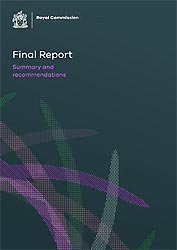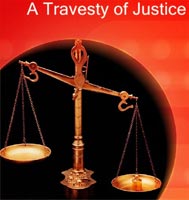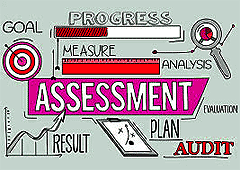Record number of AHPRA complaints, despite drop in GP visits
Although the number of GP consultations has decreased this year compared to previous years, the number of notifications over the year was 10% higher than the previous year, according to AHPRA’s annual report.
AHPRA’s website reports a lot on its actions on Health Care Practitioners, but there are reasons to suspect that it’s against doctors are at a different level of intensity to those against other health care practitioners such as psychologists and nurses, etc.

* The top three reasons for a notification were clinical care (43.5%), medication issues (9.9%) and communication (7.2%).
* 132 matters about professional misconduct were determined by tribunals: 100% resulted in disciplinary action.
* AHPRA completed 11 proceedings in the Magistrates’ and Local Courts. All prosecutions resulted in guilty findings.
This is interesting because the ACCC with all the government’s resources often fails in its attempts at convictions. Apparently AHPRA is so efficient and knowledgeable that it never fails.
The Chairperson the Medical Board at AHPRA Dr Anne Tonkin said that the general rise in notifications was at least partly due to the ease with which people can submit a complaint.
“Certainly I don’t think the quality of medical practice in Australia is declining at all,” she said.
“And we’ve inadvertently made a rod for our own backs by making it very easy to submit a notification. It’s an online or telephone process and it can be done very easily. I think in the old days when a letter was required, perhaps people would get to the stage of writing the letter and then feel better having written it and not send it.”
“Practitioners who demonstrate their commitment to safe, professional practice through their thoughts and actions are more likely to experience an informal, timely resolution of a complaint,” quoted an AHPRA spokeswoman.
Our strategy is to give you some options
for changing your working environment.
1. This site (www.cons10.com) is devoted to letting doctors control their working environment. Our Focus: limiting consultations and maximising income to keep yourselves and your businesses viable. Do the 10 minute consultation training module. This site is on the Web www.cons10.com.
It is made to display online much like a web page. It should project well onto a screen. Feel free to show it to others or to talk about it. Just mention us though, to help us all to do something about our working milieu.
2.WWW.GUVNOT.COM is a site that aims to serve as a guide to the simple things you can do to run a campaign to force an issue.
Every great intervention consists of three parts or acts. The first part is called “The Pledge”. We show you some ordinary everyday things and ask you to Commit to them – to see if it could indeed be real for you.
The second act is called “The Turn”. Together we are going to take the ordinary something and make it do something extraordinary. There is no secret formula or secret words or secret influences. But sometimes seeing things happen is not enough. Making governing organisations or Administrators stand up and notice is not what we’re about. We want change. Do the small things in a combined strategy to succeed.
That’s why this intervention has a third act, the hardest part, the part we call “The Prestige”. Creating energy for change in an industry where democracy and rights exist only as words and hallucinations.
3. www.Bloodweaver.com is devoted to helping small groups of people with shared interests to get together and to work to effect change. It would work for doctors but would work for other groups of people with shared interests as well. Our goal here is to work within the system and allow democratic and legal processes to funnel the force for change effectively- creating change from within the system of government. The power of democracy is to allow people to make changes in their world and their government. If each person is true unto themselves, they are experts in t their own self-interest and can be relied on to build a world that serves the most to the mostest.
Large organisations handle small issues badly. There is not enough "general" interest to serve as a force for change. The issue may only affect a few or be of serious significance to a few. Our solution: Get together in a small group of people with a shared interest and work to effect change. Groups of a maximum of 5-6 share costs, share ideas and usually achieve consensus in a small pool of well acquainted members.
If you dream of seeing GPs doing Point of Care" Ultrasound, you may balk at spending $10,000 by yourself to try to achieve change, but spending $2,000 each as part of a group of 5, may well be a much more acceptable sacrifice to make to achieve your dream or ambition.
We all share a social / work milieu so finding other likeminded people may not be difficult. The Medicare system effectively dictates what work you can do, what equipment you can use and what you get paid for it. Doctors in Australia have never spent much time imagining a new future, but it is indeed possible if you work with likeminded people to effect change.
Sexual boundary notifications
Of the 464 sexual boundary notifications received by AHPRA in 2019/20, 84.1% were made about practitioners in three professions: medical practitioners (45.0%), nurses (21.6%) and psychologists (17.5%). As a proportion of all notifications received about registered health practitioners in each profession this equates to 3.6% of medical practitioner notifications, 5.3% of nurse notifications and 11.0% of psychologist notifications.
Immediate action was considered on 158 occasions for sexual boundary notifications. Immediate action was taken 109 times, with 12 matters yet to be decided at 30 June. Of the immediate action taken about sexual boundary notifications, 52.3% of the action taken related to medical practitioners, 9.2% to nurses and 17.4% to psychologists.
Sexual boundary notifications resulted in a higher proportion of suspensions through immediate action (37.3% of matters) compared to all notifications (27.2% of matters). As an outcome of immediate action, National Boards imposed conditions in 22.8% of sexual boundary matters, accepted an undertaking in 8.2% of matters and after initially considering it, decided not to take immediate action in relation to 23.4% of matters.
The serious nature of sexual boundary notifications is reflected in the outcomes of closed matters.(AHPRA's words).
Action was taken more often in sexual boundary matters compared to other notifications with 10.9% of all sexual boundary matters resulting in a caution or reprimand (compared to 4.6% of all notifications categories), 11.5% resulting in conditions being imposed on the practitioner’s registration (compared to 7.3%) and 10.9% resulting in the practitioner’s registration being surrendered, suspended or cancelled (compared to 0.9%).
Note that there are probably about 70% of accused practitioners here who have have had immediate action undertaken and then were effectively found "not guilty".
The higher risk profile of sexual boundary matters is also reflected in the stage of closure when compared to all notifications with 14.2% of sexual boundary matters closed after referral to a tribunal (compared to 1.6% for all notification categories), 45.3% closed following an investigation (compared to 21.7%) and 38.8% closed at the assessment stage (compared to 73.6%).
Immediate action
National Boards took immediate action on 580 occasions, which is ...... 51.0% (196) ..... more than in 2018/19. The proportion of notifications where immediate action was taken was 5.7% of the notifications received.
If the police were boasting of undertaking a 50% increase in immediate action, it would imply that there has been a fundamental change in how a legal process of conviction is being undertaken. In AHPRA's case a burgeoning realisation that practitioners have no effective defence and that it (AHPRA) has unopposable powers to impose decisions.
Assessment and investigations
National Boards closed 70.2% of notifications following an assessment. These notifications did not require an investigation. This is up from 68.1% in 2018/19. In 92.4% of cases closed following an assessment, a National Board decided to take no further action; or decided that a complaint raised with a health complaints entity (HCE) would be retained by an HCE. In 7.4% of cases closed following an assessment, a National Board took regulatory action by: referring the notification to another body, cautioning the practitioner, imposing conditions on registration, or accepting an undertaking. In one case a practitioner surrendered their registration.
Investigation
The proportion of notifications that progressed from assessment to investigation because a National Board required more information before it could make an informed decision was 26.2%, less than in previous years (29.6% in 2018/19 and 33.1% in 2017/18).
In all, 2,881 notifications about 2,271 practitioners were referred for investigation. Deciding to investigate does not indicate that an allegation made in a notification is true.
Outcomes and timeliness of notifications closed
We completed 3.5% more notifications than in 2018/19. This represents the highest number of closures (9,291) since the start of the National Scheme.
Of the notifications that were closed, 14.0% resulted in regulatory action about a practitioner and 16.5% were referred to another body; or to a health complaints entity for consideration of early resolution, conciliation or other complaint resolution outcome.
Background
Section 178 of the Health Practitioner Regulation National Law Act as in force in each state and territory (the National Law) defines relevant action as:
* a caution
* accepting an undertaking from the registered health practitioner
* imposing conditions on the practitioner’s registration
* Referring the matter to another entity for investigation or other action.
This document provides practitioners with information about relevant action that may be proposed by the National Board under section 178 of the National Law.
Cautions
A formal caution may be issued by a National Board under section 178 of the National Law. A caution is intended to act as a deterrent so that the practitioner does not repeat the conduct.
A caution is not usually recorded on the public national register. However, a National Board can require a caution to be recorded on the public national register.
A decision to caution a practitioner is not an appealable decision under section 199 of the National Law.

Undertakings.
National Boards can seek and accept an undertaking from a practitioner to limit the practitioner’s practice in some way if this is necessary to protect the public. The undertaking means the practitioner agrees to do, or to not do, something in relation to their practice of the profession.
Current undertakings which restrict a practitioner’s practice of the profession are published on the public national register. When a National Board decides the undertakings are no longer required to ensure safe practice, they are revoked and no longer published.
Current undertakings which relate to a practitioner’s health are mentioned on the public national register but details are not provided.
An undertaking takes effect once accepted by the National Board unless it decides otherwise.
A contravention by a practitioner of an undertaking given to the National Board is defined as unprofessional conduct under section 5 of the National Law and may result in further action being taken.
The undertaking in full appears on the practitioner’s registration certificate.
The National Board may set a review period for the undertaking. During a review period the undertaking cannot be changed or revoked unless there is a material change in circumstance. After the period of review has elapsed, a practitioner may request that the National Board revoke the undertaking.
An undertaking is voluntary, whereas a condition is imposed on a practitioner’s registration. A decision of the National Board to accept an undertaking is not an appealable decision under section 199 of the National Law.
A practitioner’s compliance with the undertaking will be monitored.
Conditions
A National Board can impose conditions on the registration of a practitioner or on an endorsement of registration. A condition aims to restrict a practitioner’s practice in some way, to protect the public.
Current conditions which restrict a practitioner’s practice of the profession are published on the public national register. When a National Board decides the conditions are no longer required to ensure safe practice, they are removed and no longer published.
Examples of conditions include requiring the practitioner to:
* complete specified further education or training within a specified period
* undertake a specified period of supervised practice
* do, or refrain from doing, something in connection with the practitioner’s practice
* manage their practice in a specified way
* report to a specified person at specified times about the practitioner’s practice, or
* not employ, engage or recommend a specified person, or class of persons
There may also be conditions related to a practitioner’s health. The public national register will generally not record the details if the National Board decides it is necessary to protect the practitioner’s privacy and there is no overriding public interest for the condition to be published. The public national register will record that conditions have been imposed.
Conditions take effect on the date decided by the National Board.
When the conditions are imposed the National Board will set a review period for the conditions. During a review period the conditions cannot be changed or removed unless there is a material change in circumstance. After the period of review has elapsed, the practitioner may request the National Board to change or remove the conditions.
The National Board may in limited circumstances decide that information is not to be included pursuant to section 226 of the National Law:
* If the inclusion of practice related conditions in the public national register would present a serious risk to the practitioner’s health or safety, in which case the practitioner is requested to address this in the practitioner’s submission to the National Board.
* The National Board may decide not to include health related conditions in the public national register.
A decision to impose conditions on a practitioner’s registration is an appellable decision and the practitioner will be given information on how to appeal to the relevant Tribunal if conditions are imposed. An appeal must be lodged within 28 days of the practitioner being given notice of the decision to impose conditions.
The full text of conditions imposed by the National Board appears on the practitioner’s registration certificate.
A practitioner’s compliance with the conditions will be monitored.
Referring the matter to another entity.
A National Board can refer the matter to another entity, for example the Health Complaints Entity for investigation or other action.
In respect of all relevant action:
If a matter falls within the jurisdiction of the Health Complaints Entity, in the relevant state or territory, section 150(7) applies and the Health Complaints Entity will be advised of any health, conduct or performance action the National Board decides to take.
Under section 206 of the National Law, a practitioner’s employer must be advised of any health, conduct or performance action the National Board decides to take.
In the event that a practitioner changes principal place of practice to New South Wales while the practitioner’s compliance with an undertaking or conditions is being monitored by the Australian Health Practitioner’s Regulation Agency, the monitoring of the practitioner’s compliance will be transferred to the relevant New South Wales Health Professional Council. The relevant Council will also consider any application for review.
The National Law may be viewed in full at www.ahpra.gov.au.
Please note the following clause of your Practitioner Indemnity Insurance Policy:
Withdrawal of indemnity for Part B
We may decide not to incur any further legal fees and other expenses for pursuing, defending or responding to a request for indemnity under Part B if we believe, in our sole opinion, that there are no reasonable grounds in pursuing, defending or responding to the complaint, matter or prosecution or there are no reasonable prospects of success if we do. We will take account of the lawyer’s advice in making that decision. If we do that, we will tell you in writing. We will pay the legal fees and other expenses incurred prior to the date on which we write to you telling you of our decision.
You may continue pursuing, defending or responding to the complaint, matter or prosecution. After we cease paying the legal fees and other expenses, we will only pay you thereafter for the reasonable legal fees and other expenses (not including the GST component if you are registered for GST) that you have incurred if you are successful in pursuing, defending or responding to a complaint, matter or prosecution.
 No More. It Ends Here.
No More. It Ends Here.








